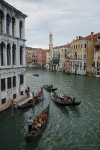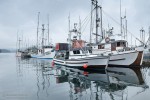World Environment Day (WED) is celebrated every year on June 5th, to raise global awareness and positive action for the environment. The UN General Assembly declared 2014 as the International Year of Small Island Developing States (SIDS), and the 2014 World Environment Day will shine a spotlight on issues facing the SISD in light of climate change. The official WED slogan for the year 2014 is ‘Raise your voice not the sea level‘.
Global mean sea levels are rising and are forecasted to continue rising in the foreseeable future. Because the rate of sea level rise is much faster now than over the last several thousand years, there is a potential for unrivaled impact on natural ecosystems and human-built infrastructure in coastal areas. According to the US Department of Defense’s environmental research, some of the potential environmental impacts include a more rapid coastal erosion, increased storm damage to coastal infrastructure, and saltwater intrusion into aquifers and surface waters. Rich nations, like the U.S.A., might be able to prepare for and mitigate the negative effects of rising ocean levels. The world’s small island nations, which are collectively home to more than 63 million people, are less likely to be able to do so.
Coastal communities rely on a healthy environment for their survival and economic viability. One way to protect coastal ecosystems and increase resilience to pressures caused by climate change and resource extraction by humans, is to increase a network of marine protected areas. Unfortunately, Canada is not doing well in this regard. A report released last Monday by the Canadian Parks and Wilderness Society, reveals that out of the 10 countries with the largest ocean coastlines, Canada ranks the lowest in terms of the number and size of marine protected areas. While our country claims one of the largest ocean territories in the world, only 1.3% of it is protected through meaningful long-term conservation measures. Canada lags behind China, Indonesia, Russia, and 6 other countries with large ocean regions.
Marine protected areas have been shown to enhance harvestable fish populations beyond the boundaries of reserves. Which is very important for people living in coastal communities who will have to deal with rapid coastal erosion, increased storm damage and other negative effects caused by the climate change. More progress is needed in this field, especially if the federal government is expecting to deliver on it’s committment of establishing a network of marine protected areas covering at least 10% of Canada’s oceans by 2020.
I do not have any images from “small island nations” to show you. Instead, I put together a selection of photographs from coastal communities in developing and developed countries, which are equally affected by the climate change and rising seas. Enjoy.









